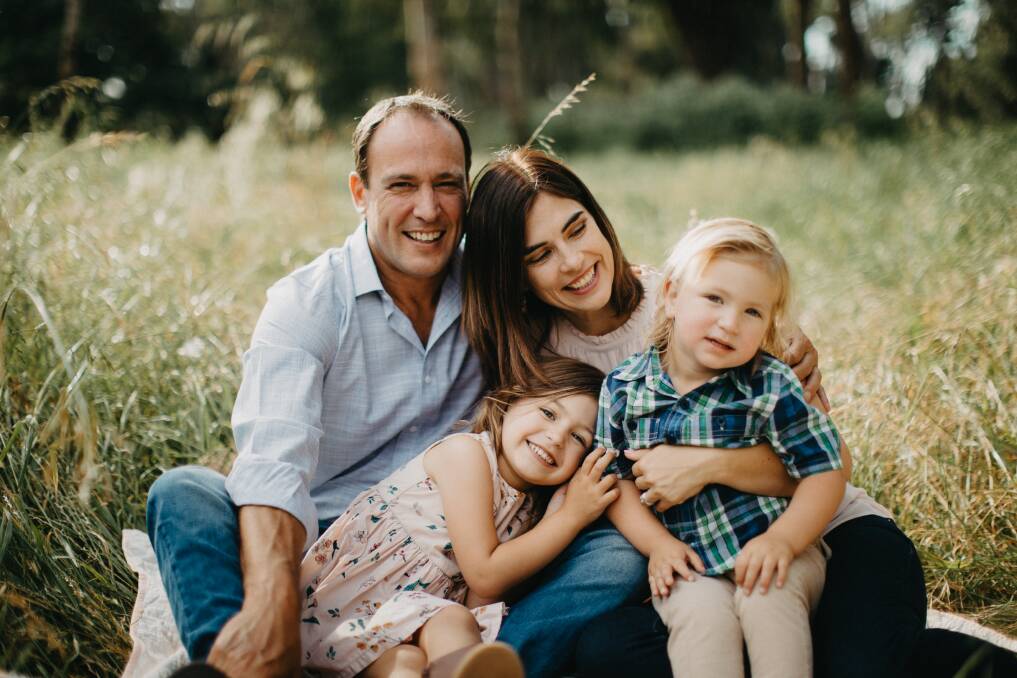
When Letitia Bassingthwaighte had her first child she knew it would not be easy but had no idea just how hard it would end up being.
Now - seven years on - she's speaking up about her "scary and confusing" experience with postnatal psychosis to help break down the stigma around perinatal mental health issues.
"People should be able to talk about their struggle without stigma or concerns about backlash about being a 'bad mother' and that's why I want to share my story," the mother-of-two told ACM.
"It took a long time to come to terms with what happened to me but now I can talk about it and I'm comfortable being open and I've had a full recovery. And I want to make sure other women can get the help they need too."
Giving birth to her first child, Ms Bassingthwaighte had to have an emergency C section, after a long labour.
For her first few days of motherhood she was in a busy room with three other mothers - also recovering from C sections - and there were doctors and nurses coming and going 24 hours a day.
"When the other babies were crying, I never knew which was my baby, so I woke for every cry. I struggled to breastfeed, I was in a lot of pain and I could not sleep hardly a wink," she said.
But coming home to Dubbo in NSW's Central West from the hospital didn't provide much relief for Ms Bassingthwaighte.
Her sleep troubles continued, she started having "strange racing" thoughts, became unable to make decisions and her mood would switch in an instant from having fits of laughter to going catatonic.
"My family from the UK was staying with me and my husband was around, but nobody knew what was happening. Especially with the manic states," she said.
"We were all confused, we had no idea it was a mental health problem. I thought I was just over tired or hadn't had enough sleep. I didn't have any history so we were clueless, what it was or where it was heading."
When she told a midwife what she was going through, the midwife told her to come into hospital where they determined she was suffering from postnatal psychosis - a condition which affects one or two women for every 1000 childbirths.
Although postnatal psychosis is more uncommon, perinatal mental health challenges including anxiety and depression can affect up to one in five expecting or new mums and one in 10 expecting or new dads.
Ms Bassingthwaighte stayed in hospital as an inpatient for less than a week but continued making five-hour round trips for specialist care once a month.
"It was very short and sharp, but the flow on effects for the following year were difficult and challenging, and that was when I needed more support," she said.
When Ms Bassingthwaighte made the "difficult decision" to have another child, she was concerned she would go through a similar ordeal and decided to research more about postpartum psychosis.
She was eventually put in touch with perinatal mental health charity the Gidget Foundation, who set her up with regular teleconferencing appointments with a psychologist throughout her second pregnancy and right after she gave birth.
IN OTHER NEWS:
"It was amazing, it was really a turning point. I was able to speak to dedicated specialists. Even in the hospital right after I gave birth, they put a laptop on my lap and I was able to speak to someone right then and there from my bed in Dubbo," she said.
"I didn't have postnatal psychosis after the second birth, it was great. So I'm a firm believer that talking to someone about what you're going through can really have an impact on your mental health."
November 6 to 12 marks Perinatal Mental Health Week - a week of awareness created by Perinatal Anxiety and Depression Australia to help the community and health professionals better understand perinatal mental health.
This year's theme is 'Building Your Community of Care' which encourages new and expecting parents to build up an open and non-judgemental circle of support around them.
"This community of care can include relationships with health care providers, trusted friends, other parents through playgroups and new parent groups, online parent support groups and mental health and care providers," said Perinatal Anxiety and Depression Australia CEO Julie Borninkhof.
Ms Bassingthwaighte is using the opportunity to share her experience with perinatal mental health so others going through it challenges know there is help available and might not feel so alone.
"There's a lot of stigma around mental health issues and there's a lack of education about it - certainly in my case, I had no idea about postnatal psychosis, it wasn't something I had ever heard of or talked about," said Ms Bassingthwaighte.
"Raising awareness through things like the Perinatal Mental Health Week is so important so people are educated and know what signs or symptoms to look out for and their partners and carers do too."

